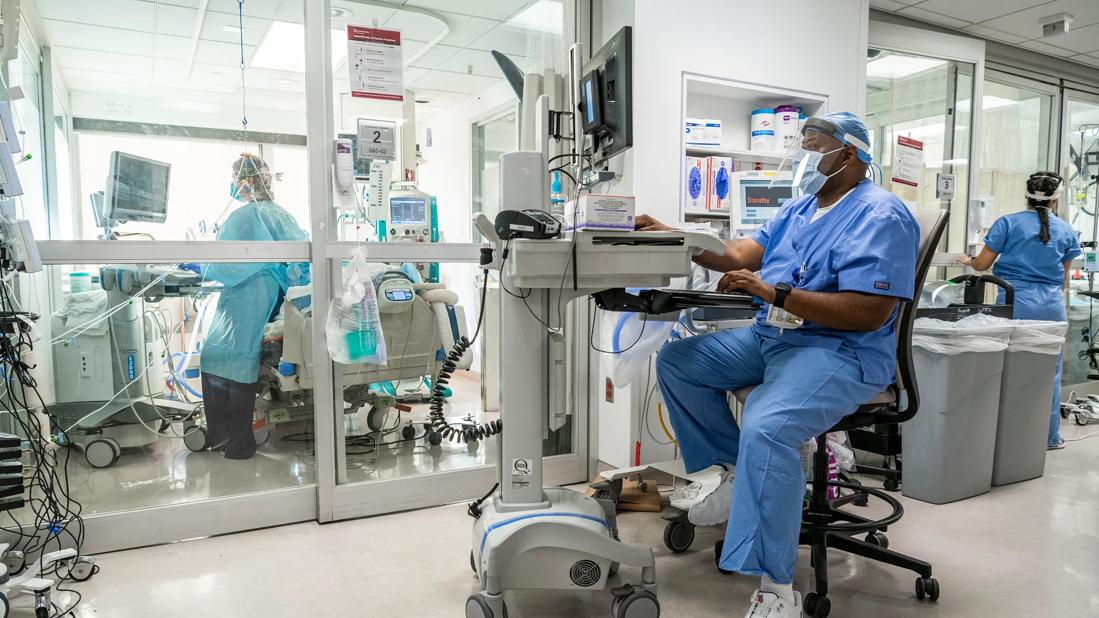By Barbara Zinner DNP, RN, NE-BC, CENP, Vice President of Nursing and Chief Nursing officer for Cleveland Clinic Marymount Hospital
Advertisement
Cleveland Clinic is a non-profit academic medical center. Advertising on our site helps support our mission. We do not endorse non-Cleveland Clinic products or services. Policy
Nurse leaders have a lot on their plates. Every day, they tackle challenges in staffing, budgeting, engagement, retention and more. Add in a global pandemic and it all gets more difficult.
During times like these, teamwork goes a long way. Throughout the past 18 months I’ve witnessed the nurse leaders at Cleveland Clinic Marymount Hospital collaborate like I’ve never seen before. Their exemplary teamwork, which is driven by nurse directors and transcends to nurse managers and assistant nurse managers, offers a great example of what can be achieved when leaders work together.
What’s the basis of their success? It’s what I like to call the 4 C’s.
- Cover. There’s much to be said about a team of dependable leaders who are willing to cover for each other when needed. Especially now, leaders need some time off to reset and regroup – physically, emotionally and mentally. On difficult or busy days, leaders also might need added help. Having fellow leaders to rely on can make all the difference.
At Cleveland Clinic Marymount Hospital, two of four nurse directors are new to their roles. Lauren Rogers, DNP, RN, NE-BC, CEN, oversees intensive care and emergency department nursing and Kimberly Platt, MSN, RN, oversees surgical nursing. Both transitioned to Marymount during the pandemic. Craig Tobias, MSN, MBA, RN, oversees medical-surgical nursing and has been with Marymount for just over 2 years. They are joined by Karen Hogan, DNP, NE-BC, RN, Marymount’s longest tenured director who leads behavioral health nursing.
Time and time again, this team has covered for one another during the pandemic – and not in a “call me if you need me” way. They show up. They are on the floor, working directly with managers and caregivers. They are committed to learning each other’s specialties and are stepping up to lead groups or committees beyond their own clinical expertise. For example, the director of surgical nursing is active in plan of care visits with physicians on medical floors.
- Care. Compassionate care is the root of nursing. But how often do we care for our colleagues as we care for patients? Good leaders care about their fellow leaders’ well-being, successes and failures.
Caring for caregivers is one of Cleveland Clinic’s care priorities and, at Marymount, there is no competition between nurse directors. They recognize that they are all on the same team and share a primary goal: create the best nursing environment to provide patients the best care possible and give caregivers a great place to work.
- Competence. Effective leadership requires competence and confidence. Confidence anchors confidence. Good leaders need to be good at what they do and know their strengths and abilities. When all members of a leader team possess these traits, the sky is the limit.
Marymount’s directors have a clear understanding of what’s expected of them and are accountable to themselves, each other and their teams, while supporting the chief nursing officer goals and objectives. As a group, we meet formally once a week, although I communicate with them daily. We have open, honest discussions to determine the best solutions for patients and caregivers. Healthy disagreements occur and are good as each leader brings individual expertise and value to the table.
- Consistence. An important part of leader collaboration is consistency. Working together continually to make decisions and determine actions that support caregivers and high-quality care is key. The leader-to-leader relationship can’t be one-off or as needed. It needs to exist every day.
Marymount’s directors meet for lunch every Monday to regroup and kick off the week. They communicate daily and have a standard rule of thumb that decisions only pass if they all agree. For example, they use Cleveland Clinic’s Just Culture Decision process to thoroughly review and discuss caregiver scenarios. The final decision is rolled out in unison, ensuring consistent messaging to all nursing caregivers at the same time.
Leaders who work together demonstrate that they are all on the same team. In many noticeable ways, the 4 C’s behaviors displayed by Marymount’s nurse directors has had a positive effect on all Marymount nurse leaders and caregivers. In addition to enhancing team collaboration, emulating these behaviors can break down silos and communication barriers, and improve engagement and caregiver satisfaction.
